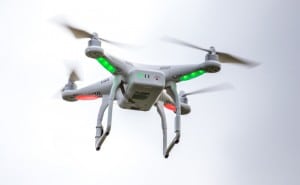Is there any industry that technology hasn’t revolutionized in the past few decades? Over the last ten years in particular, changes in Internet technology, the development of new software, and the influx of mobile devices have led to significant shifts in law enforcement, for example.
Revolutionizing law enforcement
According to Sean Petty of LawOfficer.com, the last century has been marked by gradual implementation of new technologies and subtle changes in how officers handle their daily duties. However, Petty believes the next three decades will be much different.
In his words, “The law enforcement community, and the greater public safety community, are on the verge of changes in technology that will come not only at a blisteringly fast pace, but that will each be nothing short of transformational.”
New technologies
Though the future looks bright in terms of new technologies, the truth is that currently changes are happening on a grand scale. New technologies have been introduced in recent months that are already having noticeable effects on the industry.
In addition, more technologies are coming, right around the corner. Take a look at a few of these specific devices and the effects they’re having.
- Drone technology.
 Though not yet fully refined or regulated by many government agencies and municipal authorities, it’s pretty certain that drone technology will have a future in law enforcement. From providing real-time analysis of crimes to monitoring high-crime areas, drones will be able to give law enforcement officials more access and flexibility than ever before.
Though not yet fully refined or regulated by many government agencies and municipal authorities, it’s pretty certain that drone technology will have a future in law enforcement. From providing real-time analysis of crimes to monitoring high-crime areas, drones will be able to give law enforcement officials more access and flexibility than ever before.
- Social media. The power of social media has already exhibited itself in numerous cases and will continue to be a force into the future. Investigators are actually allowed to bypass traditional security mechanisms and gain access to a user’s Facebook or Twitter profile when they have reasonable doubt to believe it could provide useful evidence in a pending case or investigation.
- Body cameras. An increasing number of police officers across the country are beginning to wear body cameras, which are capable of recording their interactions with criminals and citizens. They are small, compact, and usually attach to the upper torso of the officer. While these cameras are constantly being refined, they have already proven helpful in a number of cases.
- Google Glass.
 While Google Glass has so far failed to gain much traction in the market, it may become a valuable technology for law enforcement agents if it ever takes off. This technology could furnish real-time information, facial recognition features, GPS directions, and more.
While Google Glass has so far failed to gain much traction in the market, it may become a valuable technology for law enforcement agents if it ever takes off. This technology could furnish real-time information, facial recognition features, GPS directions, and more.
- Less-lethal weaponry. Tasers and stun guns have been incredibly valuable for police officers over the past few decades, and new technologies could enhance weapons further in the future. Ideally, officers should have the ability to use less-lethal force whenever possible, and new developments may continue to make this an attainable goal.
- Biometrics.
 Instead of relying on messy ink pads and fingerprint cards, many law enforcement agencies now have the ability to perform retinal scans, record digital fingerprints, and store DNA data with the assistance of advanced biometrics technology. As these databases and software continue to improve, it will become even easier to track criminal activity.
Instead of relying on messy ink pads and fingerprint cards, many law enforcement agencies now have the ability to perform retinal scans, record digital fingerprints, and store DNA data with the assistance of advanced biometrics technology. As these databases and software continue to improve, it will become even easier to track criminal activity.
- Tablets and mobile devices. While the average person enjoys using a tablet or smartphone to watch YouTube videos and play games, police officers actually use these devices to record and access information on the go, which allows them to utilize their time more efficiently while on duty.
California Casualty insurance
At California Casualty, we have the utmost respect for the law enforcement officers that protect our communities. As a way of showing our appreciation for first responders, we offer protection and peace of mind through superior car insurance policies and special benefits.
For more information on the policies we offer, please contact us today!
- California Casualty Earns Financial Stability Rating® of A, Exceptional, From Demotech, Inc. - April 28, 2025
- Music & Arts Grant Recipients – 2024 - December 13, 2024
- Understanding Auto and Home Insurance Rate Changes - December 3, 2024
